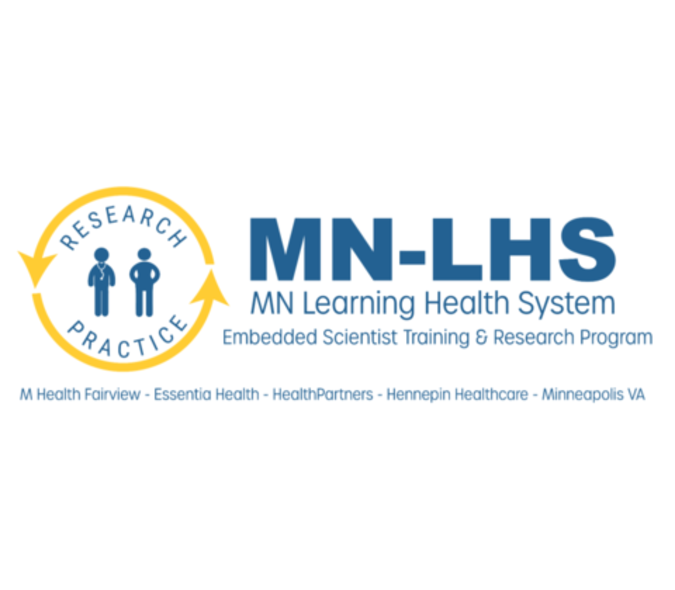
Use Cases: RapidEval's Earliest Projects
The RapidEval Program supports healthcare professionals to design, implement, and evaluate interventions aimed at improving healthcare practice.
Up to twice a year, the program opens a Call for Proposals where investigators can submit their ideas for research. Since RapidEval first started accepting proposals in Fall 2021, the program has received 56 applications and accepted 10 projects, helping numerous researchers improve the quality of their study design and collect comprehensive data that can provide more meaningful findings.
Here are some of RapidEval’s earliest projects and how they have changed since they were first accepted.
Targeted and Tailored Education to Improve Clinical Outcomes
Dr. Ben Webber
Fall 2021
Problem
Sepsis is the leading cause of in-hospital mortality at MHFV and nationwide. It is well established that antibiotic timing is important to septic patient mortality, length of stay, and complication rates. Any delay in antibiotic administration puts patients at a greater risk of mortality.
Despite this, time from sepsis diagnosis to antibiotic administration continues to be longer than desired at MHFV.
Initial Idea
Dr. Webber proposed using a micro-education intervention to inform doctors, nurses, and other staff who interact with septic patients on the importance of early recognition and treatment, as well as to empower them to take action.
Micro-education interventions are short, digestible pieces of information that can be incorporated into workflows to educate staff at the point-of-care when needed. Dr. Webber wanted to insert a 30 second video on sepsis care into a sepsis Best Practice Alert that goes out to the Emergency Department and inpatient wards. He was originally going to implement this intervention at one unit in MHFV, evaluate its impact through different quantitative metrics, and make changes to the intervention as needed.
Final Study Design
RapidEval shifted the project to a mixed methods study with quantitative and qualitative arms. For quantitative data collection, the study design was similar to Dr. Webber’s original idea. The main changes RapidEval suggested were targeting nurses with the intervention, collecting a wider variety of metrics, and implementing the intervention at every unit in MHFV that receives sepsis Best Practice Alerts. For qualitative data collection, the team held focus groups with sepsis care teams in an effort to understand how MHFV can improve sepsis care.
Through these changes, as well as RapidEval’s access to the LHS Acute Datamart, Dr. Webber was able to collect much more data than he originally planned. Overall the micro-education intervention did not cause antibiotics to be administered more quickly. However, the focus groups provided valuable qualitative data and shed light on areas where care can be improved for septic patients.
Using Decision Aids to Improve Utilization of Cardiac Monitoring
Dr. Brian Hilliard
Fall 2021
Problem
Overuse of telemetry (cardiac monitoring) reduces the number of telemetry beds available and causes a bottleneck in patient flow. Inappropriate telemetry use can also lead to worse patient experiences and inefficient use of health system resources. There is a wide variation across MHFV sites, units, and individual physicians on what is considered appropriate use for telemetry.
Initial Idea
Dr. Hilliard and the Hospital Medicine Domain Quality Committee wanted to create a Clinical Decision Support tool that would encourage providers to follow American Heart Association (AHA) guidelines for cardiac monitoring and reduce telemetry use. They proposed creating a new cardiac monitoring order that includes the AHA guidelines and a Best Practice Alert that goes out when a patient reaches the end of their recommended telemetry use.
The committee had already met with stakeholders and were modifying the EHR to accommodate their new order when RapidEval joined the project.
Final Study Design
RapidEval helped create a single group interrupted time series analysis, a study design where data is collected at regular time intervals before and after an intervention. This allowed for a much more detailed and complete comparison of measures before and after the tool was implemented. They also helped the committee identify signals in their data for further investigation and collect descriptive data to improve the intervention. These improvements were possible through RapidEval’s specialized expertise and their access to the LHS Acute Care Datamart. Additionally, the RapidEval team spun off several qualitative efforts to better understand the factors impacting a provider’s decision to follow (or not) the best practice advisory and clinical decision support tools.
Overall, incorporating the AHA guidelines into orders reduced telemetry use without harming patient safety. The detailed data collection allowed the committee to examine the relationship between telemetry orders and comorbidities, as well as telemetry use disparities between different demographics. The research team recently published an article in Journal of the American Heart Association discussing the quantitative and qualitative findings in more detail.
Improving Access to HIV Preexposure Prophylaxis Through a Targeted EHR Intervention
Dr. Zachary Kaltenborn
Fall 2022
Problem
Pre-exposure prophylaxis (PrEP) is a once daily medicine that is available for individuals who are at risk for HIV. PrEP is more than 90% effective at preventing HIV infection, however, there is a large gap between patients eligible for PrEP and patients who are actually prescribed it.
Many providers express an interest in prescribing PrEP but note that unfamiliarity with the guidelines make them hesitant or uncomfortable providing a prescription. The purpose of this project is to provide additional guidance on PrEP prescribing at the point of care, therefore making this process easier for providers so that disparities between who qualifies for PrEP and who actually receives it are reduced.
Initial Idea
Dr. Kaltenborn used M Health Fairview (MHFV) data in a 2019 pilot study to demonstrate that there was a gap between patients who qualified for PrEP and patients who actually received the medication. Based on this, he proposed an order set in Epic for prescribing PrEP. His project was structured as a quality improvement intervention that would be implemented in MHFV primary care clinics.
Final Study Design
The RapidEval team helped Dr. Kaltenborn improve the quality of his study through key changes. The project transitioned from a Quality Improvement intervention to a pragmatic randomized trial that used a decade of baseline data instead of a year. Additionally, the project team created and linked an STI testing order set with a PrEP prescribing order set in order to capture data more sensitively. The RapidEval team also leveraged support from the Practice Based Research Network (PBRN) to be able to implement this project across the entire Primary Care Service Line (PCSL), providing a much larger reach.
RapidEval also addressed issues with the study’s baseline data set and helped to design a more user-friendly implementation.
The STI order set and PrEP arm of the randomized trial went live in Fall 2023.



